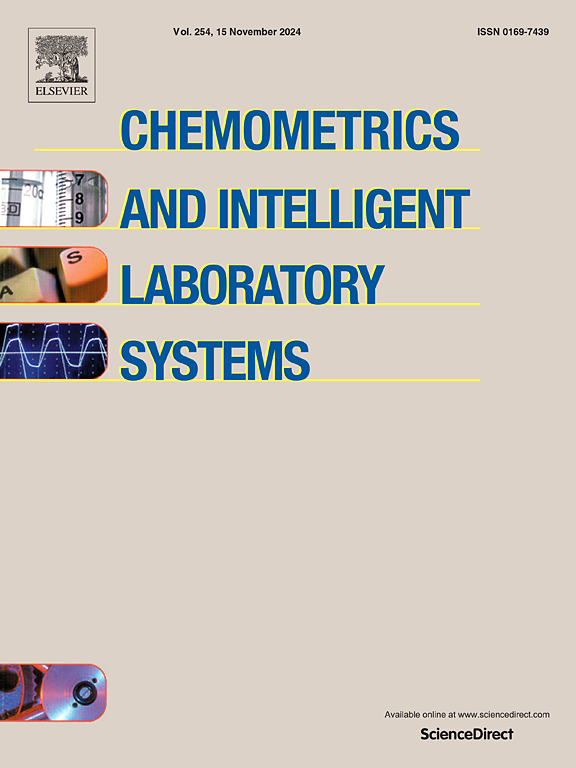State-of-the-Art Review on Applications of Various Machine Learning Models in Biodiesel Production
IF 3.7
2区 化学
Q2 AUTOMATION & CONTROL SYSTEMS
Chemometrics and Intelligent Laboratory Systems
Pub Date : 2025-04-03
DOI:10.1016/j.chemolab.2025.105391
引用次数: 0
Abstract
Recent advances in Artificial Intelligence (AI) have significantly influenced biodiesel production as a renewable source of energy, primarily through the enhancement of transesterification reactions and yield optimization. This review summarizes key findings from multiple studies on optimization of biodiesel production from biomass using machine learning models. This review analyzes various machine learning models and optimization techniques used for biodiesel production. Several optimization strategies, including evolutionary algorithms and heuristic methods, are explored across different studies. Among the models evaluated, those employing advanced configurations and ensemble techniques demonstrated superior performance in accuracy and correlation with biodiesel datasets. Particularly, enhanced versions of neural networks, extreme learning models, and fuzzy systems emerged as top performers, offering robust solutions for biodiesel optimization. Findings suggest that machine learning not only augments traditional catalyst development and yield prediction methods but also offers a consolidated framework enhancing overall process efficiency. This work intends to offer an extensive examination of the present status and forthcoming prospects of Artificial Intelligence applications in biodiesel production, synthesizing a broad range of contemporary useful literature.
各种机器学习模型在生物柴油生产中的应用研究进展
人工智能(AI)的最新进展主要是通过增强酯交换反应和优化产率,对作为可再生能源的生物柴油生产产生了重大影响。本文综述了利用机器学习模型优化生物质生产生物柴油的多项研究的主要发现。本文分析了用于生物柴油生产的各种机器学习模型和优化技术。几种优化策略,包括进化算法和启发式方法,在不同的研究中探索。在评估的模型中,采用先进配置和集成技术的模型在准确性和与生物柴油数据集的相关性方面表现出优异的性能。特别是,增强版的神经网络、极限学习模型和模糊系统表现优异,为生物柴油优化提供了强大的解决方案。研究结果表明,机器学习不仅增强了传统的催化剂开发和产率预测方法,而且提供了一个统一的框架,提高了整个过程的效率。这项工作旨在对人工智能在生物柴油生产中的应用现状和未来的前景进行广泛的研究,并综合了广泛的当代有用文献。
本文章由计算机程序翻译,如有差异,请以英文原文为准。
求助全文
约1分钟内获得全文
求助全文
来源期刊
CiteScore
7.50
自引率
7.70%
发文量
169
审稿时长
3.4 months
期刊介绍:
Chemometrics and Intelligent Laboratory Systems publishes original research papers, short communications, reviews, tutorials and Original Software Publications reporting on development of novel statistical, mathematical, or computer techniques in Chemistry and related disciplines.
Chemometrics is the chemical discipline that uses mathematical and statistical methods to design or select optimal procedures and experiments, and to provide maximum chemical information by analysing chemical data.
The journal deals with the following topics:
1) Development of new statistical, mathematical and chemometrical methods for Chemistry and related fields (Environmental Chemistry, Biochemistry, Toxicology, System Biology, -Omics, etc.)
2) Novel applications of chemometrics to all branches of Chemistry and related fields (typical domains of interest are: process data analysis, experimental design, data mining, signal processing, supervised modelling, decision making, robust statistics, mixture analysis, multivariate calibration etc.) Routine applications of established chemometrical techniques will not be considered.
3) Development of new software that provides novel tools or truly advances the use of chemometrical methods.
4) Well characterized data sets to test performance for the new methods and software.
The journal complies with International Committee of Medical Journal Editors'' Uniform requirements for manuscripts.

 求助内容:
求助内容: 应助结果提醒方式:
应助结果提醒方式:


